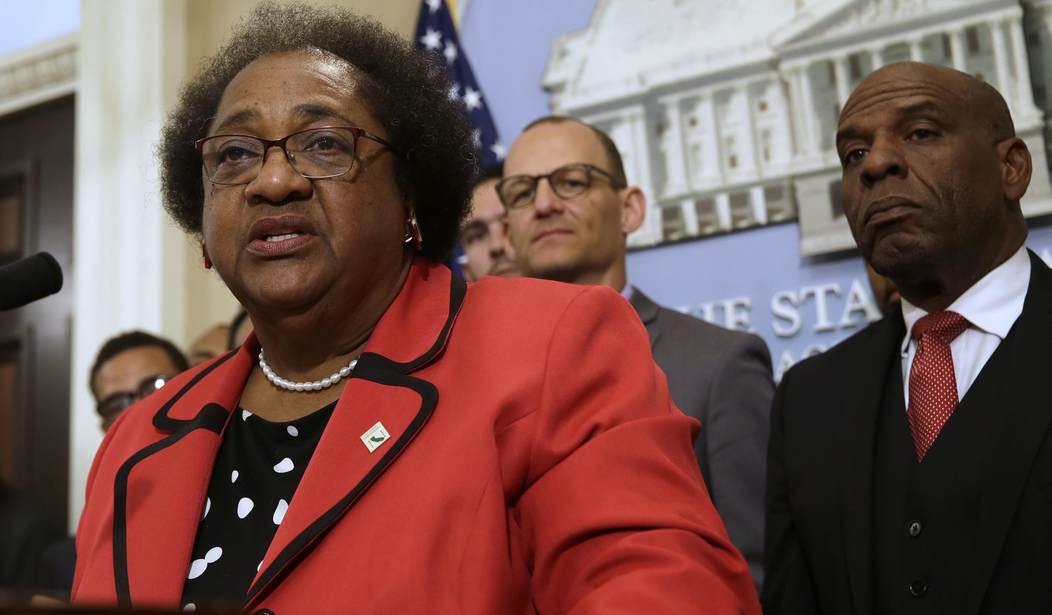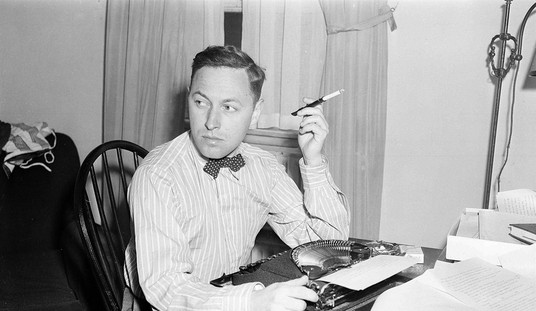Over at National Review Online this week, I’ve been involved in a debate with NRO writer David French over the Sacramento police shooting of Stephon Clark. Mr. French acknowledges that the officers’ actions may not have been criminal (as I also argued in an earlier column here on PJ Media), but says their tactics were overly aggressive and led to Clark’s unnecessary death. I disagree. (You can read Mr. French’s columns here and here; my responses are here and here.)
While it is most often my practice to defend police officers involved in controversial incidents, there are some police officers whose actions I cannot defend, such as now-former Minneapolis officer Mohamed Noor, who inexplicably shot and killed Justine Damond last July. Within days of that shooting, I predicted Noor would be charged in Damond’s death, and nothing that has emerged since Noor was arrested has changed my mind about his culpability.
But then there are other police shootings that fall somewhere in the middle, those that may be lawful in the strictest sense of the term, but in which the officer’s tactics are so glaringly deficient that I cannot help but condemn them. Such is the case in the death of Alton Sterling, who in July 2016 was shot and killed in a confrontation with Baton Rouge, La., police officers.
Not long after the incident, bystander video emerged to show the two officers, who had answered a call regarding a man with a gun, struggling with Sterling on the ground in front of a convenience store. Sterling could be seen reaching for his pocket and trying to pull out a pistol, but one of the officers shot him before he could do so. A gun was in fact found in his pocket.
So, here you had two officers who were trying to detain a man suspected of carrying a gun, only to find themselves wrestling with him and trying to prevent him from drawing that gun and shooting them with it. Clearly, under the circumstances this was a lawful shooting, as it was found to be by Louisiana Attorney General Jeff Landry.
But that needn’t end the discussion. And indeed, it didn’t. With the conclusion of the criminal investigation, the Baton Rouge Police Department was free to conclude its administrative inquiry, and on March 30, the department announced that Officer Blane Salamoni would be fired and Officer Howie Lake would be suspended for three days.
Though Officer Salamoni’s termination strikes me as excessive and political, it seems clear from the body camera footage that both officers deserved to be disciplined. These videos show the officers approaching Sterling in the parking lot, with Lake directing a woman away from a conversation she’s having with Sterling. The officers then grab Sterling and order him to put his hands on the hood of a parked car. When Sterling resists, Salamoni places his gun to Sterling’s head and says, “Don’t move or I’ll shoot you in your f***ing head.” He also calls Sterling a “bitch,” and repeats the threat to shoot him in the head.
I would be the last to argue that “tactical profanity” has no place in police work, but by the time Officer Salamoni used his colorful language with Sterling, he was already in over his head and struggling to control the situation. Consider: The officers responded to a radio call regarding a man who had threatened someone with a gun. The caller described Sterling, so there was little doubt that on the officers’ arrival they knew he was the suspect. I don’t know what training these officers had received in dealing in armed suspects, but I doubt they were taught to walk up and grab them. A more appropriate method would have been to stay behind available cover — most likely the police car in this situation — and order Sterling into a prone position at gunpoint. If Sterling had then played the “What I did?” game, as he eventually did, the officers would have been behind cover and ready to fire if he had gone for his gun. If Sterling continued to feign innocence, the officers could have summoned backup officers, the arrival of whom may have persuaded Sterling to surrender. And, unfortunate as it is to have to consider this, had Sterling gone for his gun and then been shot under these circumstances, any video of the incident would have been unambiguous and vindicating for the officers.
As it was, Officer Salamoni thought he could intimidate Sterling into compliance with his language, with the result being both officers on the ground in a wrestling match with an armed suspect who was evidently willing to shoot them. Perhaps more concerning, Salamoni held his weapon in such a fashion that Sterling, had he wanted to, could have grabbed it.
Again, this is not to say the shooting was unlawful, only that it might have been avoidable had better tactics been employed.
Here in California, the home of bad ideas, lawmakers are considering legislation that would make it easier to prosecute police officers under similar circumstances. “We have been deeply saddened and frustrated by the killing of black and brown men by law enforcement,” said Assemblywoman Shirley Weber (D-San Diego), the bill’s author. “It seems that the worst possible outcome is increasingly the only outcome that we experience.”
The proposed law would change the legal standard by which police use of force is judged from one of reasonableness to one of necessity. It would also allow prosecutors to consider an officer’s efforts — or lack of effort — to deescalate a situation in determining if the officer had violated the law, and it would mandate that prosecutors evaluate an officer’s actions that led up to a shooting. Thus, if officers make a tactical blunder like those in the Alton Sterling incident, and after that blunder shoot a suspect, the officers could conceivably be criminally culpable even if defending themselves against a deadly threat.
The proposed law is harebrained for many reasons, primarily for the fact that it doesn’t define, as most criminal laws do, any prohibited or mandated act. For a successful prosecution, district attorneys must be able to prove each and every element of a crime. In a robbery, for example, they must prove that a defendant took property by means of force or fear. For a burglary, they must prove a defendant entered a structure with the intent to commit a felony or a theft. Take away any one of these elements and the crime has not occurred.
But in Weber’s proposed law, police officers won’t know with certainty which acts are prohibited or required, only that if they find themselves in the center of controversy for having shot someone, their actions will be scrutinized by people who a) have no experience in police work, and b) may be more concerned with political ramifications than with protecting a community against crime.
Violent crime is already on the rise in California. This proposed law won’t help.










Join the conversation as a VIP Member